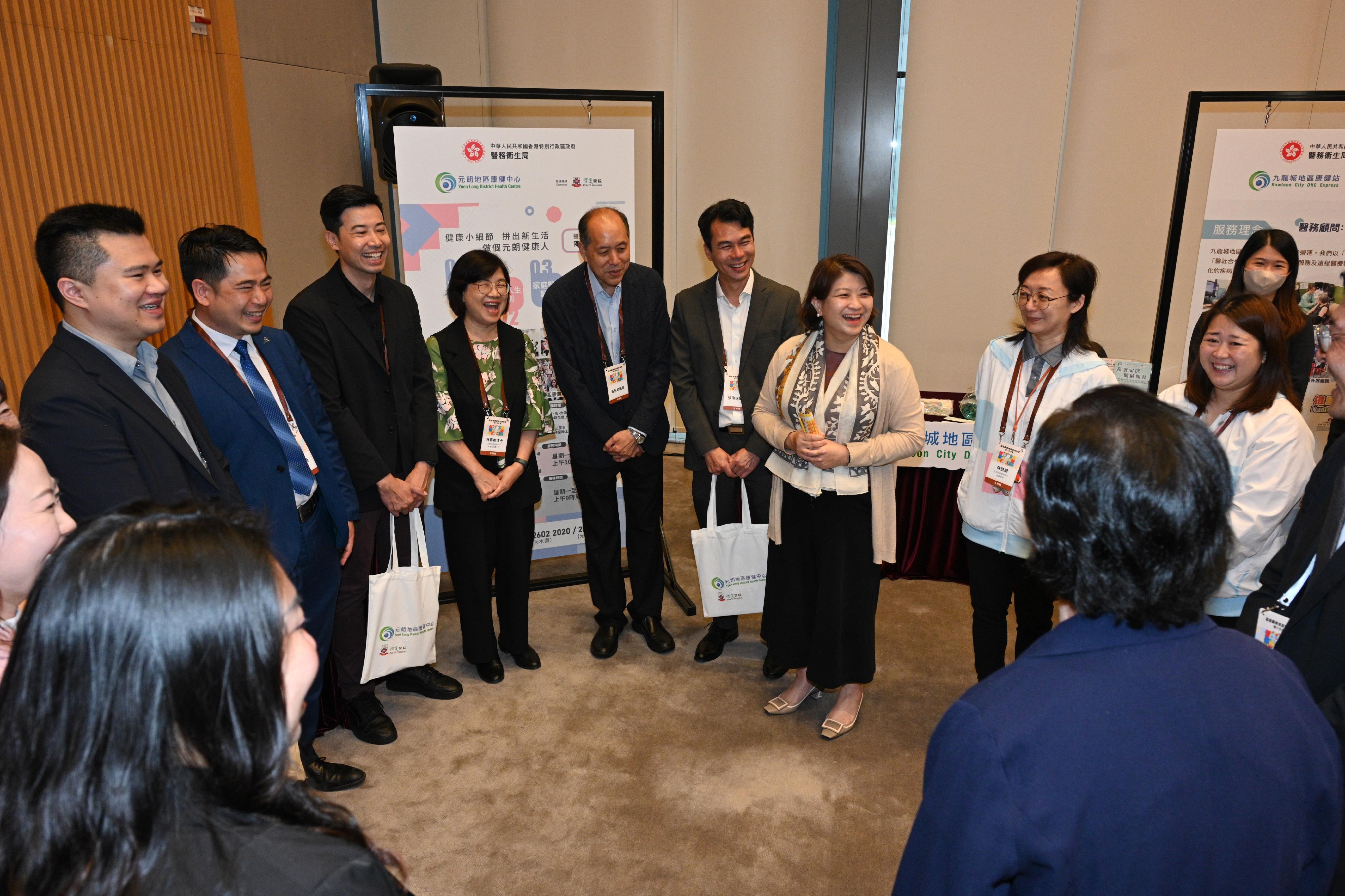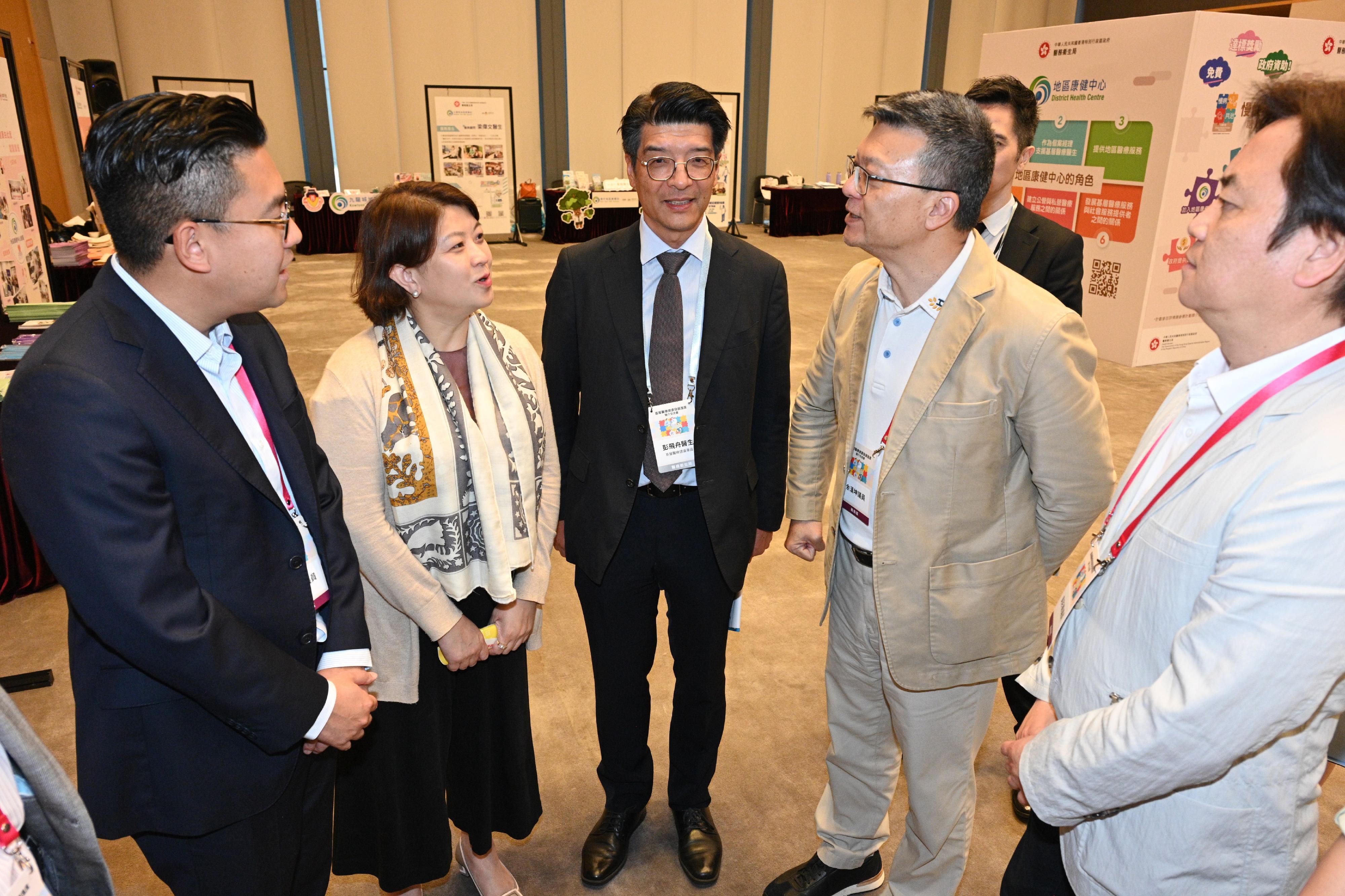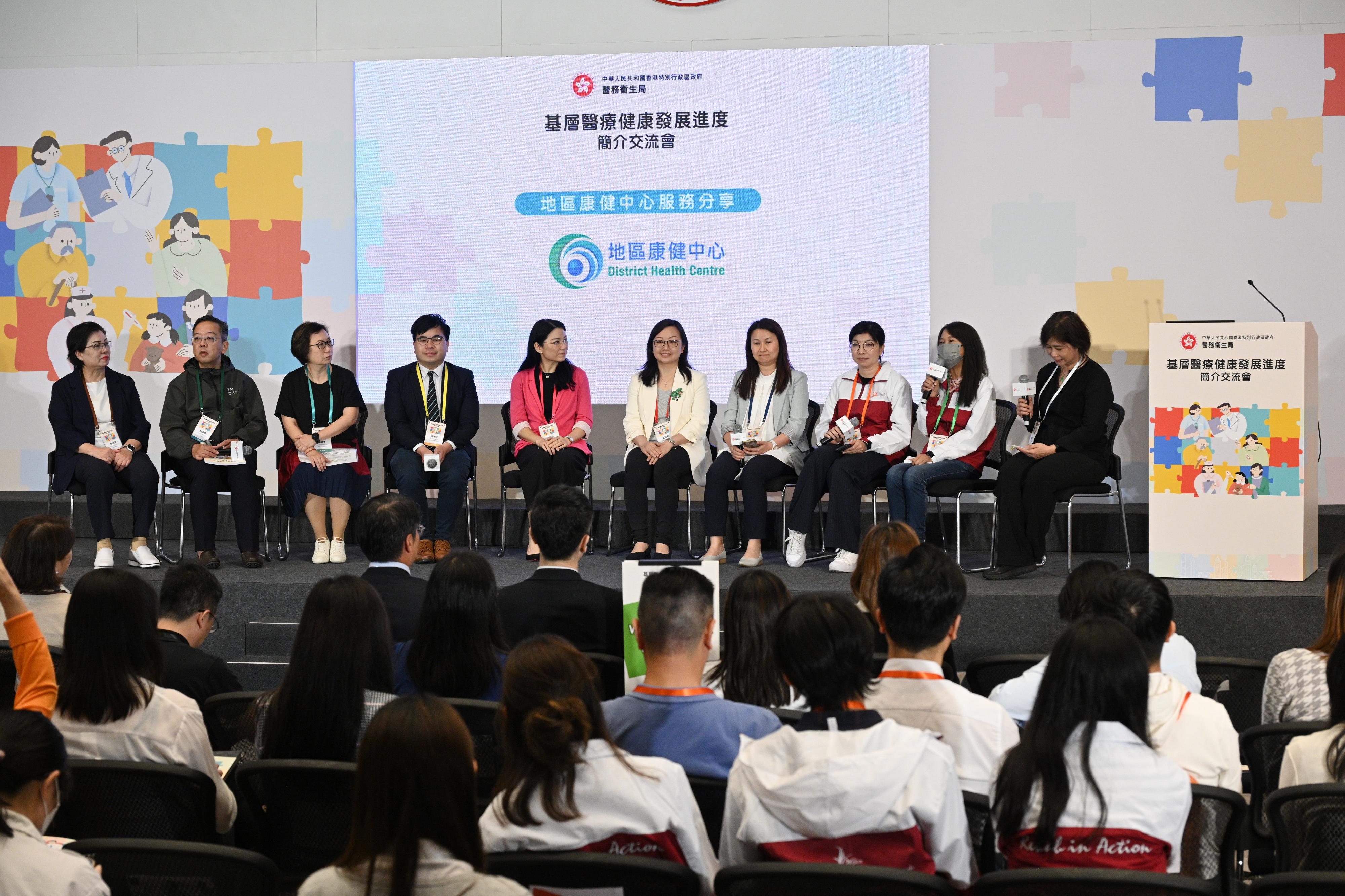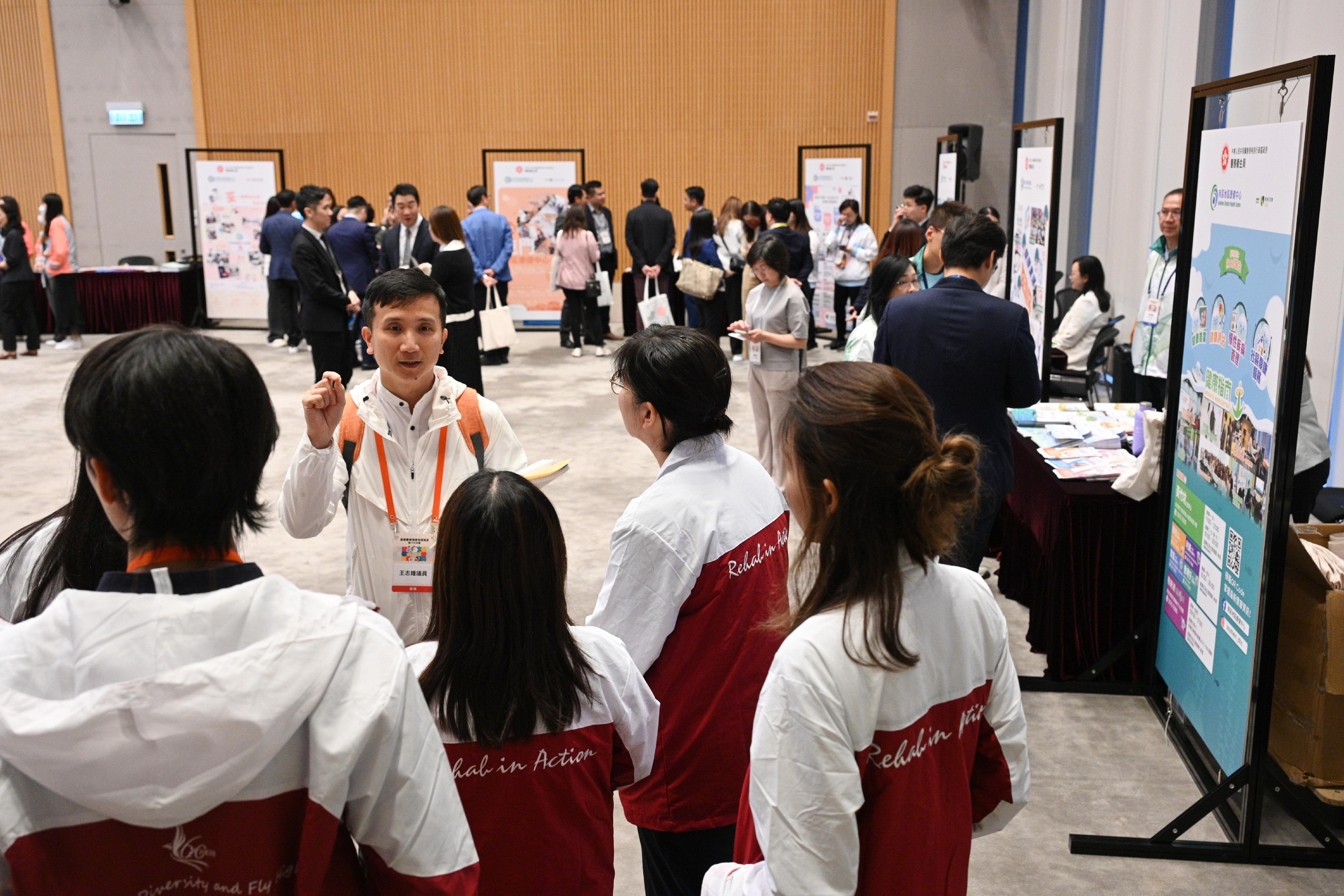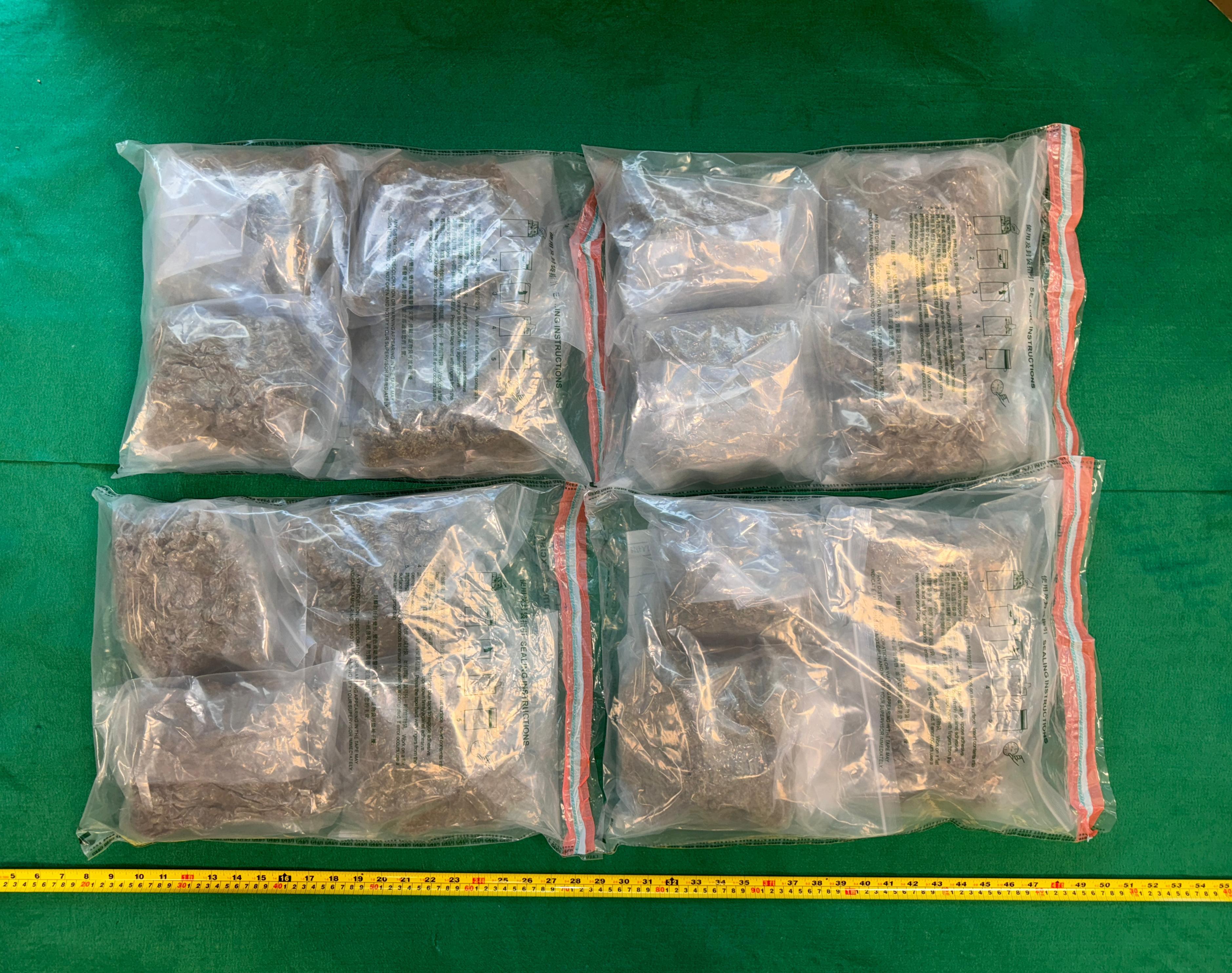Health Bureau organises briefing and exchange sessions to foster partnership with District Council members in promoting primary healthcare at community level (with photos)
The Under Secretary for Health, Dr Libby Lee, praised District Council (DC) members at an exclusive briefing and exchange session on primary healthcare development today (April 2) for being staunch and reliable district partners of the Government in pushing forward community-based primary healthcare projects with their strong district network. She said she hoped that the collaboration between DC members and District Health Centres (DHCs) will be further strengthened through the briefing and exchange sessions for driving jointly more targeted promotion of primary healthcare at the district level in the future.
Organised by the Health Bureau (HHB), the briefing and exchange sessions on primary healthcare development were held today, and will be followed by another one this Saturday (April 6). Arrangements were made for representatives of the 18 DHCs to introduce to their respective DC members in person the services they are providing to citizens with a view to reinforcing collaboration. Meanwhile, Dr Lee and the Commissioner for Primary Healthcare, Dr Pang Fei-chau, briefed DC members on the concept and latest work progress of the Primary Healthcare Blueprint, including participation in the Chronic Disease Co-Care Pilot Scheme (CDCC Pilot Scheme). They also exchanged views with DC members on more effective ways to promote primary healthcare at the district level. DC members from nine districts, namely Central and Western District, Eastern District, Southern District, Wan Chai District, Kowloon City District, Yuen Long District, Tuen Mun District, Tsuen Wan District and Islands District, attended the first briefing and exchange session today.
Dr Lee said, "This briefing and exchange session sets the stage for a perfect exchange and direct communication between representatives of DHCs and DC members. DC members can also get a better picture about the targeted services and activities being offered and arranged by DHCs to meet the needs of citizens in their own districts. While DHCs serve as the local healthcare service and resource hub, DC members have an extensive network and are familiar with district affairs. I hope that this occasion will usher in collaboration between both sides to synergise their strengths for the promotion of primary healthcare.
"The support of the local community is crucial in driving primary healthcare reform at the community level across all districts in the city. I am confident that, with staunch support from DC members who know best citizens’ sentiments with a robust district network, our explanatory work and promotion to the public will be more effective in the future and the various primary healthcare measures can be implemented in a way that suit well citizens’ needs."
Dr Pang pointed out at the briefing and exchange session that DHC services are resident-centric, ranging from services such as assisting residents in pairing with family doctors and participating in the CDCC Pilot Scheme to arranging various health talks and activities. DHCs will keep on enhancing connection and co-operation with DC members by leveraging DC members’ network resources to extend primary healthcare services to the whole community so that the concept of primary healthcare will take root in the community in the long term.
Nearly 190 DC members have signed up for the two briefing and exchange sessions so far. DC members from Yau Tsim Mong District, Sham Shui Po District, Wong Tai Sin District, Kwun Tong District, North District, Tai Po District, Sai Kung District, Sha Tin District and Kwai Tsing District will engage in exchanges with DHC representatives of respective districts this Saturday.



